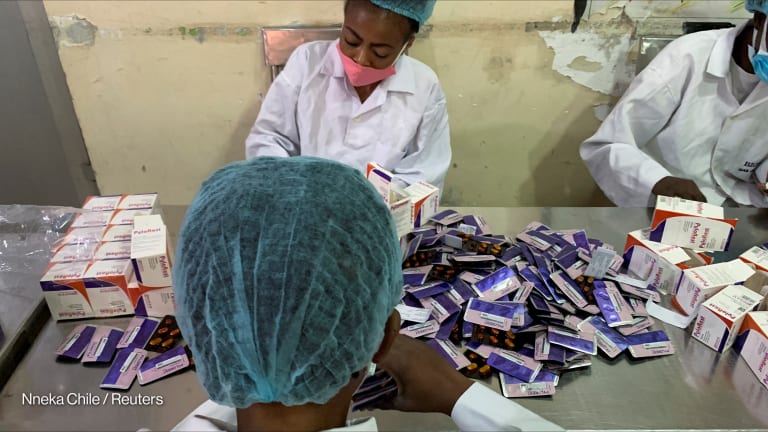The long struggle over who gets to set health priorities in Africa is tipping toward governments, as their investments in domestic health systems appear to be growing and donors increasingly recognize the importance of aligning with locally determined goals.
While acknowledging it’s impossible to generalize donor behavior, “I see a trend towards alignment from the big to the small donors,” Dr. Ebere Okereke, chief executive officer of the Africa Public Health Foundation, said during a discussion at the Devex CheckUp @ WHA 77 panel on the sidelines of the World Health Assembly in Geneva. Her organization mobilizes resources for the Africa Centres for Disease Control and Prevention and the African Union’s New Public Health Order.
What has often been missing in the past, she said, “is something to align within or against.” But that is changing, particularly in the wake of COVID-19 and other emergencies, where several countries pushed for donors to invest in local visions of how to respond. She pointed to Nigeria’s Coalition Against COVID-19 and the South Africa Solidarity Fund as examples.








